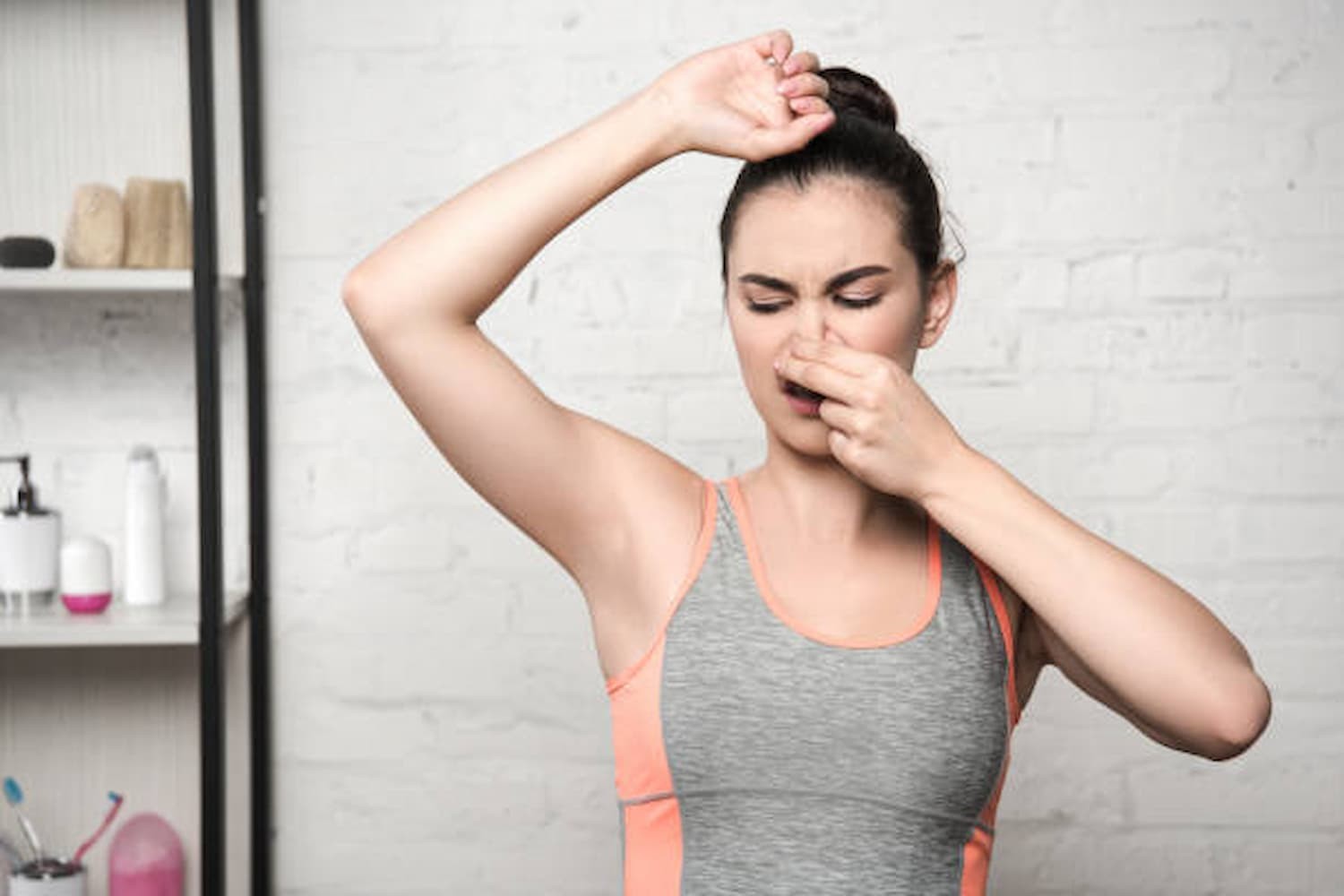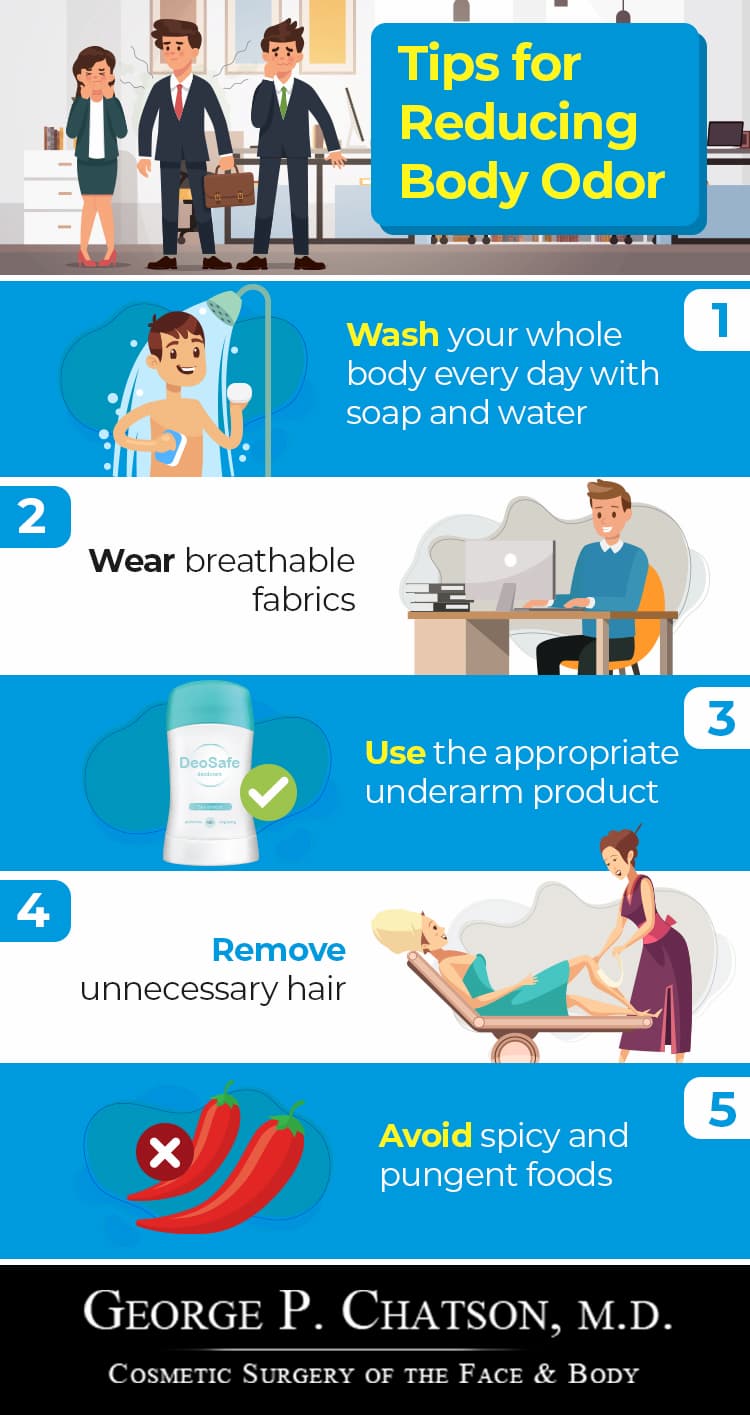
Overactive sweat glands frequently cause the body to emit foul smells. Sweaty feet, for example, are a common problem that causes embarrassment and low self-esteem, to the point where people who suffer from it prefer to hide their feet rather than wear thongs no matter how hot the weather is, for fear of becoming the subject of rumormongers' table conversations.
While poor personal hygiene is the most common cause of bad odour in the human body, you might be surprised to learn that even the cleanest person with a medical condition can emit a foul odour. Continue reading to learn about the causes of body odour and how to keep it from affecting your quality of life.
What is Body Odour?
Body odour is a condition that causes an unpleasant smell to emanate from the body when your sweat comes into contact with bacteria on your skin. There are a few different types of body odour that are relatively common. One type is known as bromhidrosis, which is caused by sweat glands that produce too much sweat. This can often be due to a health condition, such as obesity or diabetes.
Trimethylaminuria is another type of body odour caused by an excess of trimethylamine in the body. This substance is produced when the body breaks down certain foods, and it can often lead to a fishy smell. Finally, there is axillary osmidrosis, which is caused by a build-up of bacteria on the skin. This often occurs in people who don't shower regularly or who have poor hygiene practices.
Why Do You Have Body Odour?
During puberty, the body produces more androgens, which are responsible for men's and women's growth and reproductive hormones. Body odour typically begins at this stage. Smelly feet, a whiff of onion-like armpits, and bad breath are just a few of the lingering issues that some people face. Sweat, poor hygiene habits, certain health conditions, and even certain medications can all cause these. The following are some of the most common medical conditions that can cause a person's body scent to change:
- Liver disease
- Kidney disease
- Overactive thyroid
- Diabetic ketoacidosis, which is a complication of diabetes
- Bacterial infection like urinary tract infection or bacterial vaginosis
Increased body temperature as a result of hot weather, strenuous physical activities, and a high stress level may exacerbate the body's unpleasant odour. It is important to note, however, that sweat does not always imply foul odour. Active eccrine glands secrete perspiration that does not emit any foul smell, which evaporates directly on the skin's surface. However, because they are attached to your body's hair follicles and are found in the armpits and groin area, apocrine glands frequently produce foul-smelling sweat.
People who suffer from hyperhidrosis, a condition that causes excessive sweating, are more likely to have foul odours. This is especially true for people who have focal hyperhidrosis, a genetic condition that causes excessive sweating in the armpits, feet, hands and head.
How Can You Get Rid of Body Odour?
There are a few things you can do to get rid of body odour. These include showering regularly, using an antiperspirant or deodorant and wearing clean, breathable clothes. You should also avoid foods and drinks that can contribute to body odour. These include meats that are high in fat, such as lamb and pork, as well as cabbage, onions and garlic. When these foods are not cooked properly, they can release toxins that can make body odour worse. In addition, alcohol and spicy foods can also make body odour more pronounced.
If your body odour is due to a health condition, your doctor may recommend medication or other treatment options.
Source: George P. Chatson, M.D.
What are Natural Remedies for Body Odour?
There are some natural remedies that can aid in the removal of body odour. Among these are apple cider vinegar, bicarbonate of soda and tea tree oil. Mix one of these ingredients with water and massage it into your skin.
Using a vinegar rinse
If you have smelly and sweaty feet, an apple cider vinegar soak can help. Add one part vinegar to four parts water and use this solution to rinse your body after bathing. The acidity in the vinegar will help kill bacteria and prevent body odour.
Taking probiotics
Probiotics are live bacteria that are good for your gut health. If you have body odour caused by bacterial vaginosis, adding probiotics to your diet can help fight off bad bacteria and yeast, reducing unpleasant odour.
Applying baking soda
Baking soda is another excellent choice for preventing body odour because it absorbs sweat and neutralises odours. To reduce sweaty feet or armpit perspiration, simply apply a small amount of baking soda to your underarms and body after showering.
Using essential oils
Some essential oils, such as lavender oil and tea tree oil, have antibacterial properties that can help fight body odour. Witch hazel is a natural astringent that can help tighten pores and reduce sweating, thus reducing the likelihood of body odour. Add a few drops of these oils to your bathwater or apply them directly to your skin after diluting them in a carrier oil.
Finally, make sure to stay hydrated by drinking plenty of fluids and eating foods that are high in water content such as citrus fruits, kale and spinach. This will help flush out the bacteria that is causing the body odour. If you need help ending your ordeal, a qualified natural healthcare provider, such as a naturopath or colon hydrotherapist, can be of assistance.










